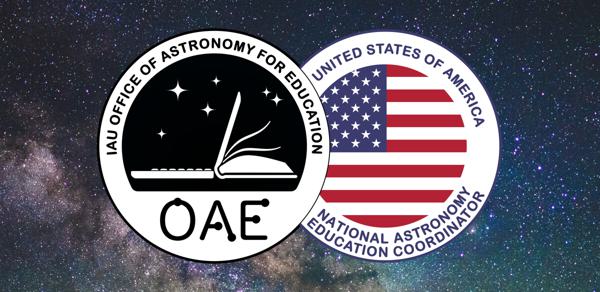Glossary term: বিবৃদ্ধি চাকতি
Description: যখন কোন মহাকাশীয় বস্তু পদার্থ জড়ো করতে থাকে, যদি না পতনশীল পদার্থটি ইতিমধ্যেই আকর্ষণকারী বস্তুর দিকে সরাসরি অগ্রসর হয়, তবে এটি সরাসরি আকর্ষণকারী বস্তুর উপর পড়তে পারে না। প্রকৃতপক্ষে, পতনশীল বস্তুটি আকর্ষণকারী বস্তুর কাছাকাছি চলে যাওয়ার সাথে সাথে, কৌণিক ভরবেগ সংরক্ষণের কারণে, তার এবং আকর্ষণকারী বস্তুর মধ্যবর্তী রেখার লম্ব দিকে তার বেগের উপাদানটি বৃদ্ধি পায়।
অনেক ক্ষেত্রে, পতিত পদার্থ আকর্ষণকারী বস্তুর চারপাশে গ্যাস এবং ধূলিকণার একটি ঘূর্ণায়মান চাকতিতে জমা হয়, একে বিবৃদ্ধি চাকতি (Accretion Disk) বলে। এই ঘূর্ণায়মান চাকতির ভিতরের প্রান্ত থেকে পদার্থ কেন্দ্রীয় বস্তুর উপর পড়তে পারে। একটি ক্ষুদ্র কেন্দ্রীয় বস্তুর ক্ষেত্রে, বিবৃদ্ধি চাকতিতে পড়ে যাওয়া পদার্থ পতনের সময় প্রচুর পরিমাণে শক্তি লাভ করে। যেহেতু এই শক্তি চাকতিতে জমা হয়, চাকতিটি কয়েক হাজার, এমনকি লক্ষ লক্ষ কেলভিন তাপমাত্রায় উত্তপ্ত হতে পারে। কিছু ছায়াপথের কেন্দ্রে থাকা অতি বৃহৎ কৃষ্ণগহ্বরের আশেপাশে থাকা বিবৃদ্ধি চাকতিগুলি সক্রিয় ছায়াপথ কেন্দ্রীণ (Active Galactic Nucleus (AGN)) এর জন্য শক্তি সরবরাহ করে। এই অত্যন্ত উজ্জ্বল বস্তুগুলি তাদের আবাসিক ছায়াপথের সমস্ত তারার তুলনায় উজ্জ্বল হতে পারে।
বিবৃদ্ধি চারটি গুলি বিভিন্ন মহাজাগতিক পরিস্থিতিতে পাওয়া যায়, যেমন অতি বৃহৎ কৃষ্ণগহ্বর, নক্ষত্রের অবশেষ, গামা রশ্মি বিস্ফোরণ বা আদ্যনক্ষত্র।
Related Terms:
- সক্রিয় ছায়াপথ কেন্দ্রীণ
- কৃষ্ণবিবর
- Neutron Star
- Protostar
- Stellar Remnants
- Supermassive Black Hole
- বিবৃদ্ধি
- Gamma Ray Burst
See this term in other languages
Term and definition status: The original definition of this term in English have been approved by a research astronomer and a teacher The translation of this term and its definition is still awaiting approval
The OAE Multilingual Glossary is a project of the IAU Office of Astronomy for Education (OAE) in collaboration with the IAU Office of Astronomy Outreach (OAO). The terms and definitions were chosen, written and reviewed by a collective effort from the OAE, the OAE Centers and Nodes, the OAE National Astronomy Education Coordinators (NAECs) and other volunteers. You can find a full list of credits here. All glossary terms and their definitions are released under a Creative Commons CC BY-4.0 license and should be credited to "IAU OAE".
If you notice a factual or translation error in this glossary term or definition then please get in touch.
Related Activities
Hunting for black holes
astroEDU educational activity (links to astroEDU website) Description: How do astronomers detect invisible black holes?
License: CC-BY-4.0 Creative Commons অ্যাট্রিবিউশন 4.0 আন্তর্জাতিক (CC BY 4.0) icons
Tags:
Model
, Experiment
Age Ranges:
12-14
Education Level:
Informal
, Middle School
Areas of Learning:
Modelling
, Observation based
, Problem-solving
, Social Research
Costs:
Low Cost
Duration:
45 mins
Group Size:
Group
Skills:
Constructing explanations
, Developing and using models









